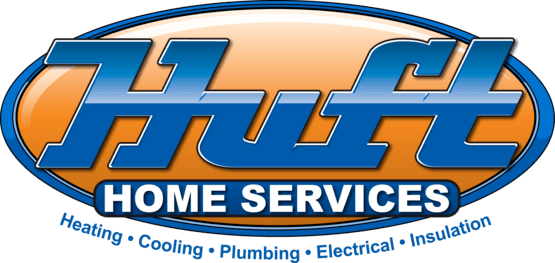It is virtually impossible to ignore a plumbing problem. Flooding, clogging and unpleasant odors from the pipes are just some of the issues that could make life with a plumbing issue unbearable. By having an understanding of the different emergencies, you can respond more effectively. Here are some tips.
Shut Off the Water From the Source
When you have a plumbing emergency, the first step is to stop the water supply to prevent damage. For small leaks, you ought to turn off the water fixture. You can locate the valves under the sink in the kitchen or bathroom.
Even if there’s only one dripping fixture, you should turn it off to avoid wasting water. A faucet losing one drop of water per second can waste 3,000 gallons per year. For a double handle faucet, turn off the valves one at a time to determine which one is leaking.
A leak at the base of the fixture indicates a problem with the washer or the O-ring. If water is dripping from the spout, it could be an issue with the aerator. The faucet may get stuck due to mineralization. You can soak a towel in vinegar to dissolve the sediment buildup and make it easy to open.
If it’s a full-blown flood, the best course of action is to turn off the main supply from the meter. It is also advisable to open the outdoor spigots to let any residual water drain out. If the drainage system has a clog, you should wait for the plumber to arrive.
Dealing With Drain Backups
Your drain performs a critical function in channeling wastewater from your home. So if there are backups, it is a sure sign that there is clogging somewhere in the drain. You can use a drain auger to clear the blockages. However, a plumber’s auger may not be effective for some stubborn clogs.
You should avoid using chemical drain cleaners during emergencies, as your plumbing could already have extensive corrosion. Using drain cleaners will introduce harsh compounds such as sulfuric acid, which reacts with metal pipes.
The violent chemical reaction will not only cause leakages, but it could produce toxic gases. Gases can go through the pipes and find their way to other parts of your home, such as the bedroom. The fumes could trigger eye, nose, and respiratory irritation.
If you have a septic tank system, chemical cleaners can have adverse effects on the leach field. The chemicals will kill the bacteria that facilitate the breakdown of matter in your wastewater. The septic tank may fill up faster due to an ineffective drain field. If you suspect there are drain problems, you can consult Huft Home Services plumbers in Sacramento.
Shut Off Water-Based Electrical Appliances
During an emergency, you should take steps to protect your water heater and other appliances that rely on water. Plumbing faults can damage your heater or washing machine, depending on the plumbing issue. For example, high pressure could trigger leaking from the storage tank of your water heater.
If there is an emergency that requires you to turn off the main valve, it is also wise to switch off your water heater. Turning off the heater prevents the dangerous buildup of heat and pressure.
Start by locating the water line that delivers water to your unit. Then, shut off the valve at the side or on top of the appliance. If it is electric, unplug it or switch off the electrical supply from the circuit breaker. Gas water heaters have a box-shaped valve at the bottom of the tank. Turn the valve to the off direction indicated on the device.
If there is no drain line for the water heater, you may want to attach a hose to it to allow water out of the system. In case there are leakages, keep the appliance off until a professional can inspect it. You can call the Huft Home Services team in Sacramento for exceptional water heater services.
Dealing With Frozen Pipes
One of the interesting facts about water is that it expands as it freezes. As such, exposure to low temperatures will cause your pipes to burst. The most vulnerable parts of your plumbing are pipes without insulation or in unheated areas of your home.
If your plumbing is already frozen, keep the faucet open to encourage water to flow. Flowing water can contain the freezing before a plumber arrives to fix it. It is not advisable to thaw frozen pipes. You could damage the piping or cause fire hazards in your home.
Additionally, some of the pipes could be inside an exterior wall. A plumber will have to dig out the piping to expose it to the warm air in the interior. You may keep the cabinets open to allow warm air to circulate throughout your home.
You can prevent further damage by letting the water run out from the faucets that are likely to freeze. If one pipe freezes, other parts of your plumbing could be prone to developing the same issue. Pay attention to the thermostat’s temperature when you are away for a vacation or extended stay.
Fixing Running Toilets and Clogs
A toilet clog is quite common, but most clogging presents an issue that you can solve. You can repeatedly use a plunger to remove blockages in the toilet. Do not pour chemical cleaners down the toilet as they could cause drain problems.
If using a plunger does not work, you can call a plumber. Water leaks around the base are a task best handled by a professional. Wastewater backing into the toilet is a common sign of drainage issues.
The issue with running toilets is often a faulty flapper. When the toilet is running, shut down the supply valve to prevent further loss of water. A leaky flapper can waste up to 200 gallons of water per day.
Pay Attention to Unusual Odors
If you have a plumbing emergency, unusual odors can give you an idea of the extent of the issue. Depending on the source of the unpleasant smell, it could point to different kinds of faults.
A foul odor from the kitchen could be an indication of malfunctioning garbage disposal. Foodstuff can lodge onto the intricate components causing clogging. You can clear minor clogs by running water through the garbage disposal.
The sewer line is another likely culprit of the foul odor emanating from parts of your home. The smell is often a sign of leakages along with the sewer or connecting drain lines. Tree roots can infiltrate the piping causing flooding and an unpleasant odor.
Failing to address issues such as clogging can quickly graduate into full-blow plumbing failure. You can clear some blockages or replace a fixture. But it is always wise to consult a certified plumber to optimize the efficiency of your plumbing system.
At Huft Home Services, we understand the frustration of dealing with unexpected plumbing problems in your Sacramento home. Our BBB accredited team has been serving the area for close to two decades. Our plumbers have vast experience handling plumbing projects of varying scope and sizes. You can expect our team to be meticulous and professional when they arrive at your home. Contact our team today to find out more.


